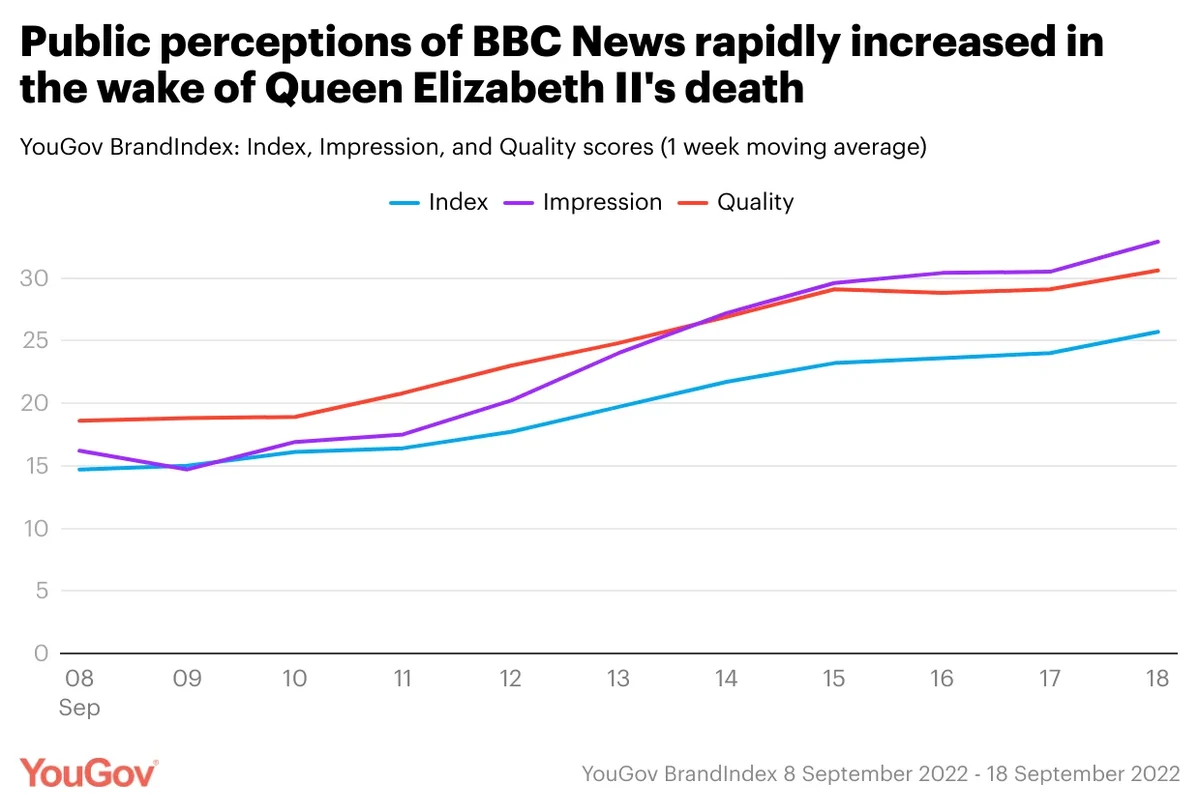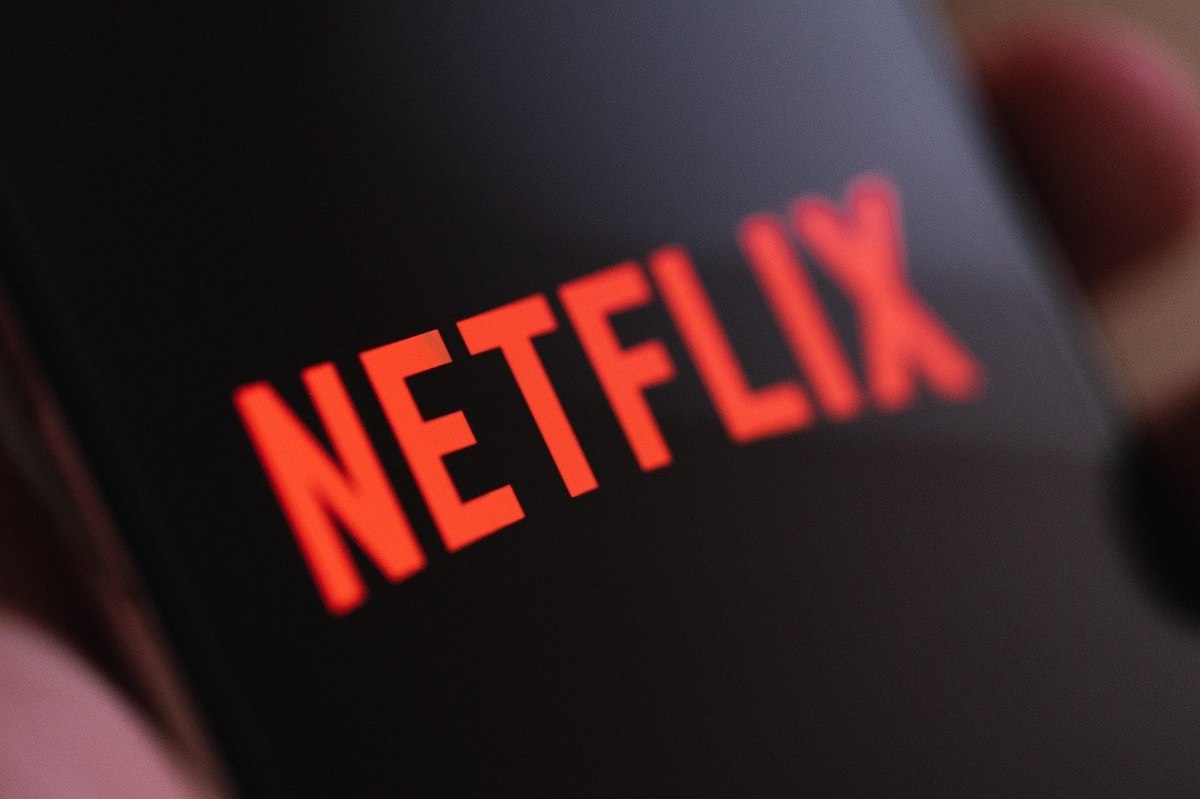
Did BBC News’ coverage of the Queen’s death resonate with a grieving public?
After a 70-year reign, Queen Elizabeth II has died: a moment that has upset three-quarters of Britons (76%), and caused more than two in five to shed a tear (44%). But it’s also a moment that broadcasters have long been preparing for – and according to data from YouGov BrandIndex, BBC News more than rose to the occasion.
Between the day of the Queen’s death (8 September) and the day before her funeral (18 September), Impression scores – which measure whether people have a positive or negative view of a TV channel – doubled from 16.2 to 32.9 (+16.7). The metric tracking the broadcaster’s Quality saw a similar leap, jumping from 18.6 to 30.6 (+12), as did Reputation scores, which ask the public whether they would be proud or embarrassed to work for a company, and which climbed from 14.6 to 26.5 (+11.9).

With presenter Huw Edwards and others earning praise for their coverage of the sovereign’s death during the national period of mourning, scores rose across other metrics too. Satisfaction among viewers went from 16.9 to 25.2 (+8.3), while Recommendations doubled from 9.2 to 20.6 (+11.4). People are also impressed by BBC News in comparison to other broadcasters: Consideration scores, which ask the public which channels they would be open to watching out of a list, increased from 34.7 to 44.3 (+9.6).
The BBC has come under fire in recent years from the left and the right; newly-minted PM Liz Truss went as far as to criticise its journalistic standards in a recent interview with GB News.
But while we can’t say how long this goodwill is going to last, the Queen’s death has allowed BBC News to prove its value to a grieving public – and with Index scores (a measure of overall brand health) seeing an 11-point rise from 14.7 to 25.7, viewers seem to have a deeper appreciation of the channel than they did before.
This article originally appeared in City A.M.























